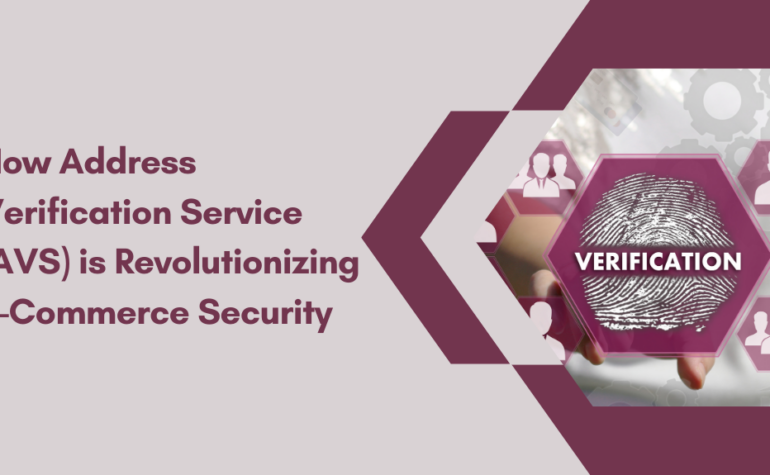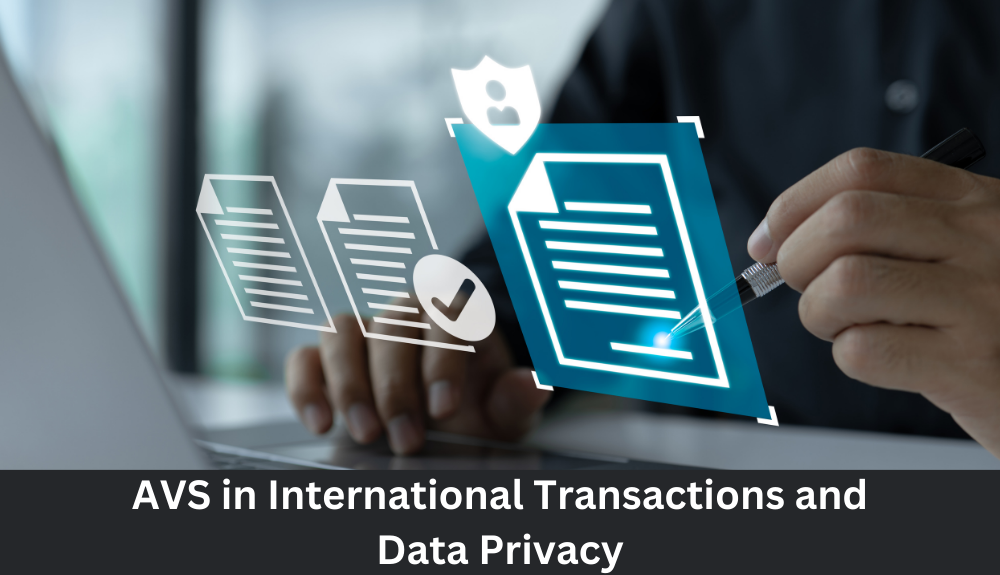Best Credit Card Processing Solutions Tailored for Every Industry

By merchantservices March 15, 2024
Are you tired of dealing with online credit card fraud that puts your e-commerce business at risk? Picture this: a customer places an order, but how can you ensure their billing address is accurate and legitimate to approve the transaction? This is where the Address Verification Service (AVS) steps in to revolutionize e-commerce security.
By verifying the authenticity of addresses during credit card transactions, AVS acts as a shield against fraudulent activities, safeguarding your business and customers alike. In today’s digital landscape, AVS serves as a critical tool to prevent credit card fraud and enhance transaction security. But how exactly does AVS work its magic to ensure secure online payments?
In this blog, we will dive into the world of AVS, exploring its definition, importance in fraud prevention, and integration with payment gateways. Discover how AVS validation minimizes risks, bolsters customer trust, and optimizes the security of electronic transactions in the ever-evolving realm of e-commerce.
Introduction to Address Verification Service (AVS)
Address Verification Service (AVS) is a powerful tool utilized by e-commerce businesses to bolster security and minimize fraud in online transactions. By validating the accuracy of billing addresses provided by customers, AVS helps ensure the authenticity of transactions while reducing the risk of fraudulent activities.
One of the primary purposes of AVS is to verify that the address provided by the customer matches the address on file with the card issuer. This verification process involves comparing the address entered during the checkout process with the billing information stored by the cardholder’s financial institution. AVS is an integral part of the merchant’s fraud prevention system, as it acts as an additional layer of security for electronic transactions.
The benefits of implementing AVS are multifold. Firstly, it significantly reduces the risk of credit card fraud and chargebacks, protecting both the merchant and the customer. Secondly, AVS enhances the overall customer experience by ensuring a smooth and secure checkout process. By authenticating the billing address, AVS helps to minimize the occurrence of partial declines and ensures that legitimate transactions are successfully processed.
In the next section, we will delve into the definition of Address Verification Service (AVS) and explore how it works to verify addresses in online transactions.
Definition and How AVS Works

Address Verification Service (AVS) is a vital component of e-commerce security that plays a significant role in preventing credit card fraud and ensuring the authenticity of transactions. But what exactly is AVS and how does it work?
AVS is a fraud prevention tool utilized by e-commerce businesses to verify the accuracy of the billing address provided during a card transaction. By comparing the address details entered by the customer with the address records on file with the card issuer, AVS determines the level of match between the two.
The AVS process involves a series of checks to assess the validity of the address information. It typically verifies key components such as the street number, street name, and postcode. Based on these checks, AVS assigns a response code to indicate the level of address match.
The response codes provided by AVS can vary, but commonly include codes like “Y” for a full match, “N” for no match, or “X” for address information unavailable. These codes help businesses assess the risk associated with a transaction and take appropriate actions to mitigate fraud.
By validating the accuracy of addresses, AVS effectively detects suspicious credit card transactions. If the provided address does not match the records of the card issuer, it may indicate a potential fraud attempt, allowing businesses to take proactive measures to prevent fraudulent transactions.
In summary, Address Verification Service (AVS) is an important tool in the world of e-commerce that helps businesses ensure the security and authenticity of electronic transactions. By verifying the accuracy of address details, AVS plays a crucial role in mitigating the risk of fraudulent transactions and enhancing the overall security of online payments.
Importance of AVS in E-Commerce
Address Verification Service (AVS) plays a critical role in e-commerce by providing enhanced security measures and safeguarding businesses from credit card fraud. It verifies the accuracy of billing addresses provided during transactions, reducing the risk of fraudulent activities and ensuring the authenticity of customers. Here’s why AVS is important in the e-commerce industry:
Preventing Credit Card Fraud
One of the primary benefits of AVS is its ability to prevent credit card fraud. By comparing the billing address provided by the customer with the records of the card issuer, AVS identifies any discrepancies or inconsistencies. If the addresses do not match or if the AVS response code indicates a potential issue, the transaction can be flagged as suspicious. This helps businesses avoid processing payments from stolen or unauthorized credit cards, significantly reducing the risk of fraudulent transactions.
Reducing Chargebacks
Chargebacks can be a major concern for e-commerce businesses, leading to financial losses and reputation damage. AVS helps mitigate this risk by verifying the authenticity of customers and their billing addresses. Legitimate transactions are more likely to be approved, reducing the occurrence of chargebacks caused by unauthorized purchases or disputes. Additionally, AVS provides a degree of confidence in the transactions, improving overall payment processing efficiency and customer satisfaction.
Enhancing Customer Experience
AVS not only benefits businesses but also enhances the overall customer experience in e-commerce. By ensuring that the customer’s billing address is accurate, AVS reduces the chances of transaction failures or delays during the checkout process. This streamlined payment experience instills confidence in customers and encourages repeat purchases. Moreover, the implementation of AVS as a fraud prevention system demonstrates a commitment to customer security and instills trust in the business.
In conclusion, Address Verification Service (AVS) is of utmost importance in the e-commerce industry. It acts as a crucial tool in preventing credit card fraud, reducing chargebacks, and improving the overall customer experience. By incorporating AVS into their payment processes, businesses can enhance the security of online transactions and establish trust with their customers.
Considerations for Choosing AVS Providers
When it comes to selecting an Address Verification Service (AVS) provider for your e-commerce business, there are several important factors to consider. Choosing the right AVS provider and integrating it seamlessly with your payment gateway is crucial for ensuring the security and authenticity of online transactions. Here are some key considerations to keep in mind:
1. Integration and Compatibility
Ensure that the AVS provider you choose is compatible with your existing payment gateway. Seamless integration is vital to ensure a smooth checkout process for your customers. Verify whether the provider offers APIs or plugins that can easily integrate with your e-commerce platform.
2. Accuracy and Reliability
Look for an AVS provider that delivers accurate and reliable results. The provider should have a robust system that can efficiently verify the billing addresses provided by customers, minimizing the risk of fraudulent transactions. Check their track record and reputation in the industry to ensure their effectiveness.
3. Coverage and International Support
If your business operates internationally, consider an AVS provider that offers extensive coverage and support for addresses across various countries. International transactions often require additional verification processes, so it is essential to choose a provider with a comprehensive database and support for different address formats.
4. Customization and Flexibility
Every e-commerce business has its own unique needs and requirements. Look for an AVS provider that offers customization options and flexibility in rules and settings. This will allow you to tailor the AVS system according to your specific fraud prevention strategies and the nature of your business.
5. Data Security and Compliance
Security is paramount when handling customer data and payment information. Ensure that the AVS provider adheres to industry-standard data security measures and complies with relevant privacy regulations. Look for providers that are PCI-DSS compliant and regularly update their security protocols.
6. Customer Support and Service Level Agreement (SLA)
Consider the level of customer support provided by the AVS provider. Opt for a provider that offers responsive support and has a reliable service level agreement (SLA). This ensures that any issues or concerns can be addressed promptly, minimizing any disruptions to your online transactions.
By carefully considering these factors, you can choose the right AVS provider that meets your specific needs and enhances your e-commerce security measures. Remember, finding the right provider is essential for safeguarding your customers’ financial information and preventing fraudulent activities.
AVS in International Transactions and Data Privacy

When it comes to international transactions, Address Verification Service (AVS) faces unique challenges and considerations. While AVS can provide valuable security measures, certain factors must be taken into account to ensure its effectiveness and compliance with data privacy regulations.
Ensuring Accurate Address Verification Across Borders
International transactions involve different address formats and cultural variations, making it crucial for AVS to adapt accordingly. AVS systems should be capable of recognizing and validating addresses from various countries. This requires robust algorithms and databases that cover a wide range of international address formats.
Addressing Data Privacy Concerns
Data privacy is a growing concern in the global online landscape. When using AVS for international transactions, businesses must comply with relevant regulations, such as the European Union’s General Data Protection Regulation (GDPR). It is essential to handle customers’ personal information securely and obtain their consent for data processing.
Challenges with Language and Cultural Differences
Language barriers and cultural nuances may affect the accuracy of AVS. Misinterpretation of addresses due to language variations can lead to transaction errors or declined payments. Businesses should consider implementing language-specific AVS rules and maintaining databases that accommodate local address conventions.
Integration Challenges with Cross-Border Payment Gateways
Integrating AVS with cross-border payment gateways can be complex. It requires coordination between different parties, including AVS providers, payment processors, and payment gateway services. Ensuring seamless integration and compatibility across these platforms is vital to reap the full benefits of AVS in international transactions.
In summary, AVS plays a significant role in international transactions by mitigating fraud risks. However, businesses must address challenges related to accurate address verification, data privacy compliance, language and cultural differences, and integration with cross-border payment gateways. By considering these factors, businesses can navigate the global e-commerce landscape while maintaining transaction security and customer trust.
Conclusion
Address Verification Service (AVS) plays a critical role in enhancing security and authenticity in online transactions. By verifying the accuracy of addresses, AVS helps prevent credit card fraud and reduces the risk of fraudulent activities. Throughout this guide, we have explored the definition and mechanism of AVS, its importance in the e-commerce industry, considerations for choosing AVS providers, and challenges related to international transactions and data privacy.
In summary, AVS acts as a fraud-mitigation measure by validating customer addresses and ensuring the legitimacy of transactions. It significantly reduces chargebacks, enhances customer experience, and improves overall e-commerce security. By selecting a reliable AVS provider and integrating it with a payment gateway, businesses can effectively prevent unauthorized transactions and protect sensitive customer information.
As the world of e-commerce evolves, AVS remains an essential tool for businesses to combat fraud attempts and maintain the security of electronic transactions. It is crucial for businesses to prioritize the implementation of AVS to safeguard against the rising instances of data breaches and fraudulent transactions. By adopting AVS as a fraud prevention system, businesses can establish trust with their customers and provide a secure payment processing experience.
Remember, implementing AVS alone is not sufficient. Businesses should also incorporate other fraud detection systems, fraud filters, and best practices to create a multi-layered approach towards e-commerce security. Regular monitoring and analysis of AVS transactions can help identify patterns and anomalies, allowing businesses to detect and mitigate potential risks.
By prioritizing the security and authenticity of online transactions, businesses can cultivate a safe and trustworthy environment for their customers, ensuring the long-term success and growth of their e-commerce ventures.
